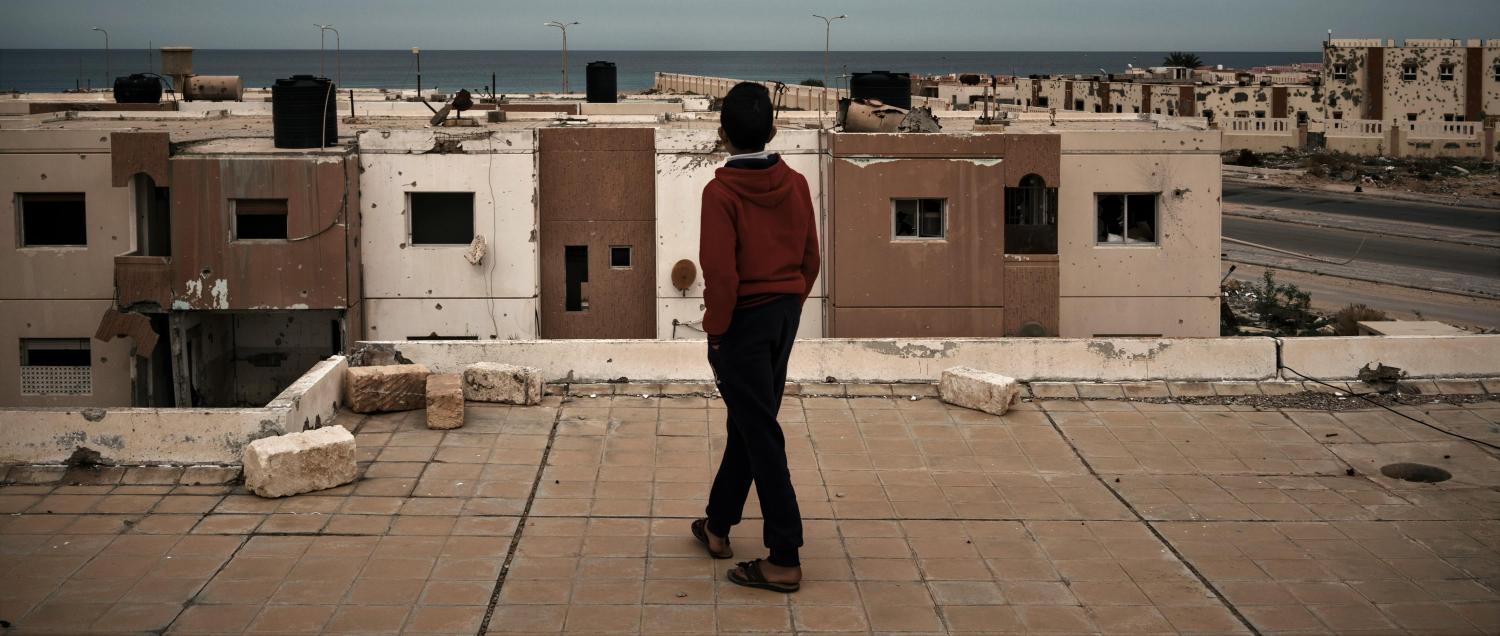Libya has been marred by violent chaos ever since the fall of Gaddafi in 2011. Political power has since split between two rival governments, in Tobruk and Tripoli. Each is supported by rival militias: the Libyan National Army, under the leadership of General Khalifa Haftar, backs the Tobruk-based House of Representatives; while militias from the powerful city-state of Misrata support the Tripoli-based Government of National Accord. At the end of 2015 the Libyan Political Agreement (LPA), a UN-backed roadmap for creating a unified Libyan government, was signed.
UN Envoy for Libya Ghassan Salamé proposed a three-stage action plan in September to end Libya's political crisis. Salamé's plan includes amending the LPA to restructure the current government, convening an inclusive national conference, finalising and approving a constitution, and holding elections – all within a year.
Months later, the House of Representatives (HoR) and High Council of State (HCS), the two rival legislative bodies tasked with amending the LPA, continue to disagree. Transferring power to the Presidency Council to make military appointments, a move opposed by the HoR, remains particularly contentious.
Lawmakers such as Aguila Saleh, the Speaker of Libya's HoR, have single-handedly delayed votes on any issues that could see their political leverage diminished, including the LPA. In November the HoR did finally vote in favour of the amendments tabled by a joint drafting committee, only for the chairman of the HCS to criticise the amendments for according primacy to the HoR. Mustering votes within the HCS for the proposed amendments is now a priority for Salamé.
While Salamé has resuscitated the UN-led negotiations (no small feat), observers are sceptical of his ability to convince the HCS's spoilers to agree on the proposal and shift focus to elections, which are the real prize. In the absence of a breakthrough in negotiations, some have suggested that Libya could move forward to holding elections. The events of 2014 demonstrated that without such an institutional framework, elections could trigger more violence instead of stabilising the country.
A positive resolution to the crisis is not only important for the stability of the country, but also to end the migration crisis in the Mediterranean. Since 2013 the number of asylum-seekers and migrants crossing the Mediterranean from Libya has accelerated dramatically as a result of the civil war.
In recent weeks, Prime Minister Fayez al-Serraj, General Haftar, HCS leader Abdulrahman Sewehli, and HoR speaker Aguila Saleh have all expressed support for elections. Their commitment, however, will depend on their ability to influence the outcome. Central to this will be a new electoral law to be drafted, again, by a joint committee of the HoR and HCS.
Libya's current election law, adopted in 2014, distorts the distribution of voters by drawing electoral boundaries based on regional and tribal considerations. As such, the law favours the eastern and southern parts of Libya in terms of representation. The HoR has a sizeable number of members from the Eastern federalist movement, the political force campaigning for equal representation of Libya's three main regions. Unless both the HoR and HCS are willing to cede ground, a solution to Libya's stalled transition remains as far away as ever.
Whatever the result of these negotiations, 2018 looks promising for General Haftar. If elections go ahead as planned they will offer him a shot at the presidency; if negotiations break down, the case for a military strongman in power will be strengthened. Haftar, the dominant military force in the east, has already indicated he will take control if elections fail. France, meanwhile, has signalled a shift towards Haftar and the Libyan National Army. The use of force and a blind eye from Europe would most likely further escalate the conflict.
Instead, the international community should continue to support of the UN-backed process and refrain from launching separate initiatives and from championing military solutions in the absence of political consensus. At the same time, while giving Salamé more time to convince spoilers on both sides, countries should heed his call for member states "to participate in a new round of funding for the United Nations Stabilization Fund, so it can significantly scale up delivery".
If ordinary life in Libya does not improve tangibly soon, the humanitarian crisis will worsen and international attempts to put the country on a more solid political footing, such as the UN Action Plan, will falter.
